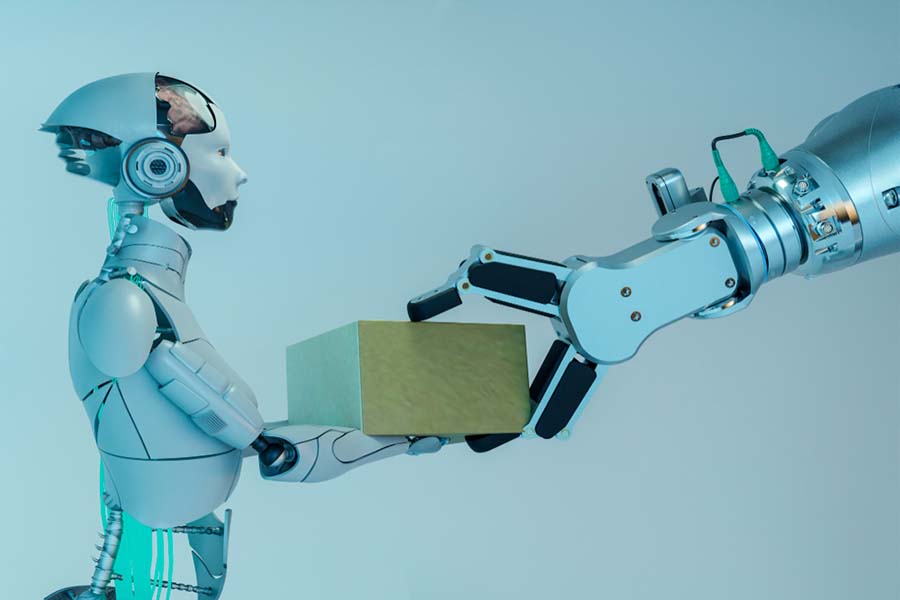Unlocking Knowledge: Metaverse Education

Virtual classrooms and immersive learning experiences have revolutionised education delivery and consumption. In the digital age, the metaverse concept has paved the way for a new era in education. This article explores the potential of metaverse education, highlighting the benefits, challenges, and prospects.
Introduction to Metaverse Education
The metaverse refers to a collective virtual shared space created by the convergence of physical and virtual reality. It is an interactive and immersive environment that allows users to engage with digital content and interact with others in real time. The metaverse offers a dynamic platform for students and educators to connect, collaborate, and learn in education.
With metaverse education, traditional barriers such as geographical limitations are broken down. Virtual classrooms enable students and teachers to connect from anywhere worldwide, eliminating the need for physical proximity. This opens up a world of opportunities for students in remote areas who may not have access to high-quality education locally. They can now access educational resources and participate in classes anytime, facilitating self-paced learning.
Benefits of Virtual Classrooms in Metaverse Education
Flexible Learning: Virtual classrooms provide the flexibility of accessing educational resources and participating in classes at any time, facilitating self-paced learning. Students can learn at their own pace, ensuring a personalised learning experience catering to their needs. Additionally, virtual classrooms allow asynchronous learning, where students can conveniently access lectures and materials.
Enhanced Collaboration: Students can collaborate with peers and educators from diverse backgrounds, fostering a rich learning experience and cultural exchange. In virtual classrooms, students can engage in group discussions, share ideas, and work on collaborative projects. This promotes critical thinking, problem-solving skills, and the ability to work effectively in teams.
Cost-effective: Metaverse education reduces costs associated with transportation, accommodation, and infrastructure, making quality education more affordable and accessible. With virtual classrooms, students don’t have to worry about commuting or relocating to a different city or country for education. This significantly reduces financial burdens and allows more students to pursue educational goals.
Personalised Learning: The metaverse allows for personalised learning experiences tailored to individual student needs, promoting better engagement and understanding. Virtual classrooms can adapt to each student’s learning style and pace, providing targeted resources, interactive activities, and personalised feedback. This personalised approach enhances student motivation and helps them achieve better learning outcomes.
Real-world Simulations: Virtual classrooms can simulate real-world scenarios, allowing students to practice and apply their knowledge in a safe and controlled environment. For example, medical students can simulate surgeries, engineering students can simulate complex projects, and language learners can practice conversations with virtual language partners. These simulations provide valuable hands-on experience, enhancing student skills and confidence.
Training in the Metaverse: Upskilling in Immersive Environments
In addition to traditional education, the metaverse presents unique opportunities for professional development and upskilling. Various industries can leverage immersive training experiences to enhance employee skills and improve performance. From healthcare simulations to virtual flight training, the applications of metaverse training are vast and diverse.
Metaverse training offers several advantages over traditional training methods:
Safe and Risk-Free Practice: Metaverse training allows professionals to practice complex tasks and procedures without the risk of real-world consequences, leading to improved confidence and competence. For example, surgeons can practice delicate procedures without endangering actual patients, and pilots can simulate emergencies without compromising safety.
Real-time Feedback: Virtual training environments provide instant feedback, enabling learners to identify areas for improvement and make necessary adjustments. The metaverse can track and analyse learner performance, providing detailed insights and customised recommendations. This feedback loop accelerates learning and helps learners refine their skills more effectively.
Cost-effective: Metaverse training eliminates the need for expensive equipment and resources, reducing training costs significantly. Virtual simulations can provide a cost-effective alternative for industries requiring specialised equipment or facilities. For example, aviation companies can use virtual reality (VR) simulations instead of investing in physical flight simulators for pilot training.
Scalability: With the metaverse, training programs can be scaled easily to cater to many learners simultaneously, ensuring efficient and effective knowledge transfer. Virtual training platforms can accommodate thousands of learners simultaneously, enabling organisations to provide consistent training experiences to a global workforce. This scalability also allows for continuous learning and upskilling as industries evolve.
Challenges and Considerations
While metaverse education holds immense potential, several challenges must be addressed to ensure its successful implementation.
Accessibility: Ensuring that metaverse education is accessible to individuals with disabilities is crucial for inclusive learning experiences. Virtual platforms must have accessibility features like screen readers, closed captions, and alternative input methods. Additionally, educators should receive training on inclusive teaching practices to support diverse learners.
Digital Literacy: Adequate training and support must be provided to learners and educators to navigate and utilise metaverse technologies effectively. Not all students and educators may be familiar with virtual platforms, so resources and guidance should be available to help them adapt to the metaverse. Digital literacy skills are essential for utilising the full potential of metaverse education.
Technical Infrastructure: Reliable internet connectivity and robust technical infrastructure are prerequisites for seamless metaverse education. Students and educators require access to high-speed internet, compatible devices, and reliable virtual platforms. Adequate investments in infrastructure and technical support are necessary to ensure a smooth learning experience for all users.
Data Security and Privacy: Safeguarding sensitive data and ensuring privacy protection is essential in the metaverse, given the digital nature of the environment. Virtual platforms must employ robust security measures to protect user information and prevent unauthorised access. Educators and learners should also be educated about data privacy best practices to maintain confidentiality and trust.
Equity and Social Inclusion: Efforts must bridge the digital divide and ensure that metaverse education is accessible to all socio-economic backgrounds. This includes providing equal access to technology and internet connectivity and addressing socio-economic barriers that may hinder participation. Scholarships, subsidies, and community initiatives can help promote equity and social inclusion in metaverse education.
Future Prospects of Metaverse Education
The future of metaverse education looks promising, with ongoing technological advancements and increased adoption across various sectors. As virtual reality (VR), augmented reality (AR), and mixed reality (MR) technologies continue to evolve, the potential for immersive learning experiences will only expand.
Conclusion
Metaverse education can transform traditional classrooms into dynamic, interactive, and inclusive learning spaces. Through virtual classrooms and immersive training experiences, learners can transcend geographical barriers, collaborate with diverse peers, and develop the skills needed for success in the digital age. However, to fully harness the potential of metaverse education, careful considerations and investments are required to overcome challenges and ensure equitable access for all.
Be sure to check out our other related posts if you enjoyed this one:
- The Rise of Collaborative Robots: Transforming Industries
- Unmasking Cyber Secrets: The Art of Deception Revealed!
- Decoding Cyber Threats: The Social Engineering Menace
- Unlock the Ultimate Quest: Ready Player One’s Audio Adventure!
- Revolutionising Wellness: Metaverse Therapy Unleashes Mental Liberation!
- Code Mastery Unleashed: Transform Your Skills with Clean Code by Robert C. Martin! 🚀
- Top Must-Have Tech Gadgets for Kids – Unbelievable Fun!
- Mastering Crypto Trading: Proven Strategies
- Unveiling Ethereum 2.0: Advancements & Impact
- AI Transforms E-Commerce: A Digital Revolution
Sign up for updates on this blog and our latest tech posts if you enjoyed reading this one.
FAQ
What is metaverse education?
Metaverse education uses virtual classrooms and immersive learning experiences to deliver education. It is a collective virtual shared space where students and educators can connect, collaborate, and learn in an interactive and immersive environment.
What are the benefits of virtual classrooms in metaverse education?
Virtual classrooms provide flexible learning, enhanced collaboration, cost-effectiveness, and personalised learning. Students can access educational resources and participate in classes at any time, collaborate with peers from diverse backgrounds, reduce costs associated with transportation and accommodation, and receive personalised learning experiences tailored to their individual needs.
How does metaverse training benefit professionals?
Metaverse training offers safe and risk-free practice, real-time feedback, cost-effectiveness, and scalability. Professionals can practice complex tasks without real-world consequences, receive instant feedback for improvement, reduce training costs, and scale training programs to cater to many learners simultaneously.
What are the challenges of metaverse education?
The challenges of metaverse education include accessibility, digital literacy, technical infrastructure, data security and privacy, and equity and social inclusion. Ensuring accessibility for individuals with disabilities, providing adequate training and support for learners and educators, reliable internet connectivity and technical infrastructure, safeguarding data security and privacy, and promoting equity and social inclusion are crucial considerations for successful implementation.
Credits
Featured photo by Denniz Futalan on Pexels.









